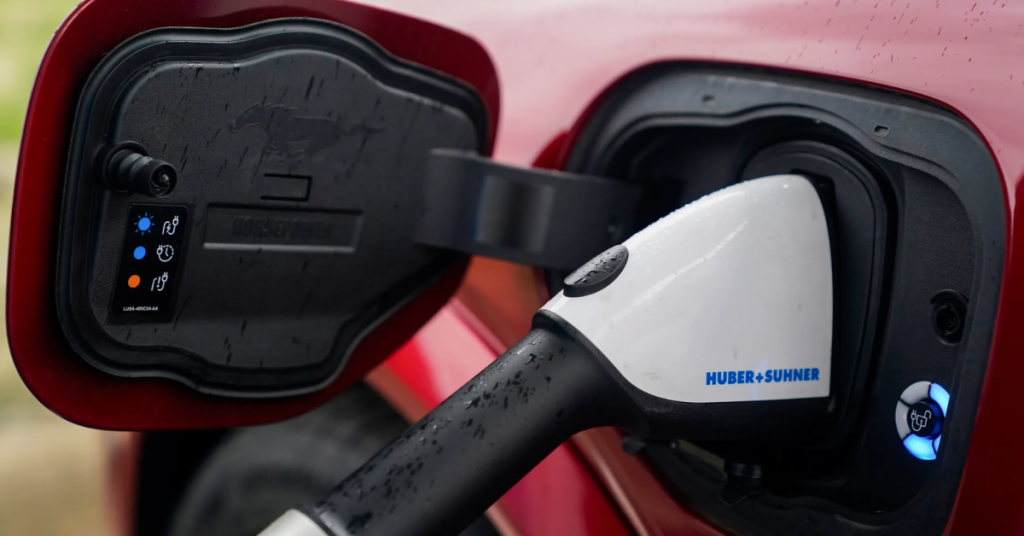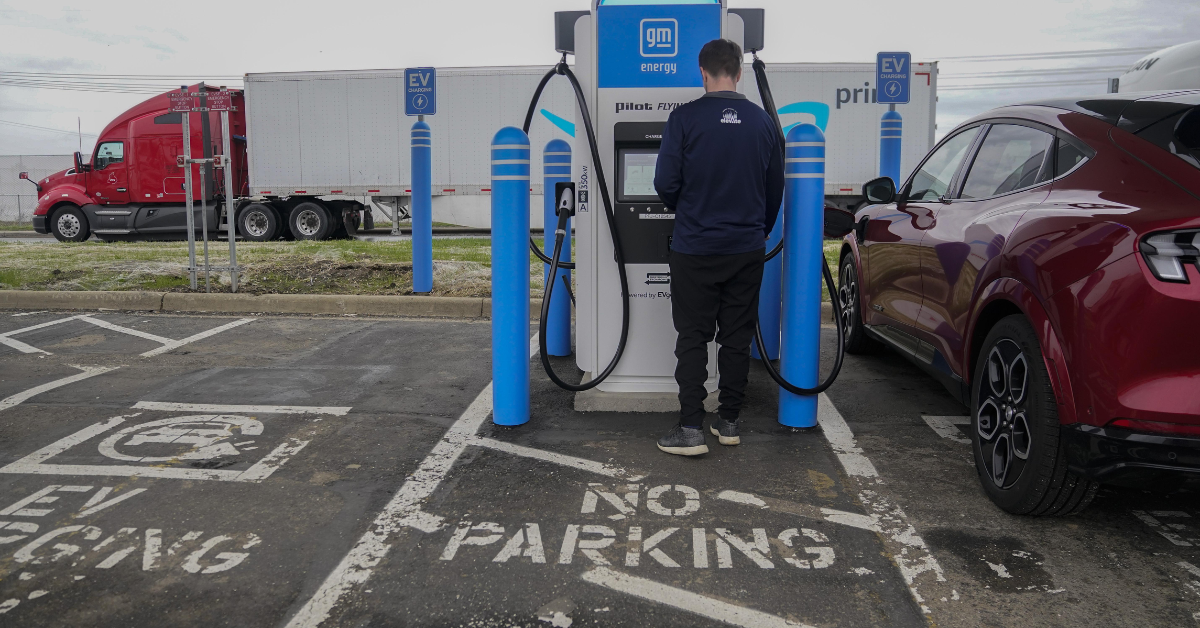House Republicans have put forward a proposal for a $200 annual registration fee on electric vehicles (EVS). This new fee, outlined in the House Transportation and Infrastructure Committee’s reconciliation bill draft, aims to offset the loss of revenue from traditional gasoline and diesel taxes, which are a crucial source of funding for the country’s road and bridge repairs.
With the rise in popularity of electric vehicles, many states and the federal government have begun seeking alternative revenue sources to maintain infrastructure funding, and this proposal appears to be one of the more significant steps in that direction.
What the Proposal Includes
The draft of the new bill, introduced by Rep. Sam Graves (R-MO), proposes new registration fees for three types of vehicles, which are set to take effect over the next decade. The proposed fees are as follows:
- $200 for Electric Vehicles (EVS)
- $100 for Hybrid Vehicles
- $20 for Other Types of Vehicles
The bill also includes provisions that these fees will not remain static. Instead, they will be adjusted annually to account for inflation, which means the costs may increase over time. The idea is to ensure that as the cost of living rises, the fees remain aligned with the economic landscape, thereby continuing to generate the necessary funds for infrastructure projects.
Why the $200 Fee?
Currently, electric vehicles do not contribute to the federal gas tax, which is used to fund the repair and maintenance of roads and bridges across the United States. The federal gasoline tax is currently set at 18.3 cents per gallon, with diesel fuel taxed at a slightly higher rate of 24.3 cents per gallon.
This tax has been in place since 1993 and provides a steady stream of revenue for the Highway Trust Fund. The tax is essential for funding the country’s infrastructure projects, but as more people turn to electric vehicles, a significant source of that funding is shrinking.
Because electric vehicles do not require fuel in the traditional sense, their owners are exempt from paying the gas tax. This has led to concerns that the lack of contribution from EV owners to infrastructure maintenance will eventually result in underfunded road and bridge repair projects, which could hurt the entire transportation system.
To address this, House Republicans have proposed a new $200 registration fee for electric vehicles. This fee would help close the gap created by the absence of gas tax payments and would ensure that electric vehicle owners contribute to the maintenance of the public infrastructure they use daily.
Comparison to Gasoline Tax Payments
To put this proposal into perspective, consider the amount of gasoline a typical vehicle consumes in a year. According to the American Petroleum Institute, the average registered vehicle in the United States uses about 489 gallons of gasoline per year. The federal gasoline tax of 18.3 cents per gallon generates approximately $89.44 in annual revenue per vehicle.

However, under the proposed $200 electric vehicle fee, an electric vehicle owner would be paying more than double the amount of tax that a traditional gasoline vehicle owner would contribute. If an electric vehicle owner were to pay the $200 fee, it would be equivalent to paying for 1,093 gallons of gasoline at the current tax rate. This comparison highlights how the new fee is designed to compensate for the lost gas tax revenue without overburdening electric vehicle owners.
It’s worth noting that there are different estimates of gas consumption based on various driving habits and vehicle types. Some estimates suggest that the average annual gas consumption is closer to 350 gallons, while others suggest a figure closer to 562 gallons. Even using the highest estimate, the $200 fee would still exceed the annual contribution that gasoline vehicle owners make to infrastructure funding.
The Push for Change Across the States
The proposal at the federal level is not a new concept, as many states have already implemented or are considering implementing additional fees for electric vehicle owners. In fact, 39 states have already introduced such fees in an effort to make up for the lost revenue from gas taxes. Some states charge a flat fee, while others have more complex fee structures based on factors such as vehicle weight or mileage.
For instance, California, one of the largest markets for electric vehicles, charges a $100 annual fee for EVS. Other states, such as Washington, have proposed similar measures to ensure that electric vehicle owners contribute to infrastructure maintenance in a manner proportionate to their vehicle usage.
Despite the growing trend of implementing such fees, there has been significant opposition to the idea. Some argue that electric vehicles should not be taxed in the same way as gasoline-powered vehicles, particularly given that EV owners already pay taxes on their electricity usage. Others argue that the $200 fee is too high and could deter consumers from purchasing electric vehicles, which are viewed as a crucial part of reducing carbon emissions and combating climate change.
How Will the $200 Fee Impact EV Owners?
The impact of the proposed $200 annual fee will vary depending on the state in which the electric vehicle is registered. In states that have already implemented their own EV fees, the $200 federal fee could add to the financial burden that EV owners are already facing. However, in states without such fees, the $200 fee might be seen as a reasonable contribution to the cost of maintaining the country’s infrastructure.
One of the challenges in introducing this fee is the potential backlash from environmental groups and electric vehicle advocates who argue that such a move could undermine the incentives for purchasing electric vehicles.
Many governments worldwide are offering subsidies, tax credits, and other incentives to encourage the adoption of electric cars as part of their efforts to combat climate change. Introducing an additional fee could be seen as contradictory to these goals.
Additionally, the increased cost of owning an electric vehicle could have a disproportionate impact on lower-income households, who may already find electric vehicles (EVS) to be more expensive than traditional gasoline-powered vehicles. This could slow down the adoption of electric cars, particularly in economically disadvantaged areas.
What Happens Next?
The proposal is still in its early stages, and there will likely be many more debates before the bill is finalised. The House Transportation and Infrastructure Committee is scheduled to discuss the proposal in greater detail on Wednesday, and lawmakers will have the opportunity to amend or revise the proposal before it moves forward.
It is also possible that the proposal will face significant opposition in the Senate, where the balance of power differs, and some senators have already expressed concerns about the potential impact such a fee could have on the adoption of electric vehicles.
For now, electric vehicle owners should keep a close eye on this development, as it could have significant implications for their registration costs in the years to come. As lawmakers continue to navigate the complex issues surrounding infrastructure funding, the future of the electric vehicle registration fee remains uncertain.
Conclusion
The proposal for a $200 annual fee on electric vehicles represents a significant step in addressing the revenue shortfall resulting from the rise in electric vehicle ownership. While the fee may seem high, it is designed to ensure that EV owners contribute fairly to the cost of maintaining and repairing the country’s infrastructure.
Whether or not the proposal will gain traction remains to be seen. Still, it signals a growing recognition that the current funding system needs to evolve in response to the shift toward electric vehicles. As the debate continues, it will be important for lawmakers to find a balance that supports both infrastructure funding and the continued growth of the electric vehicle market.
Disclaimer: This article has been meticulously fact-checked by our team to ensure accuracy and uphold transparency. We strive to deliver trustworthy and dependable content to our readers.


